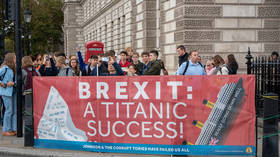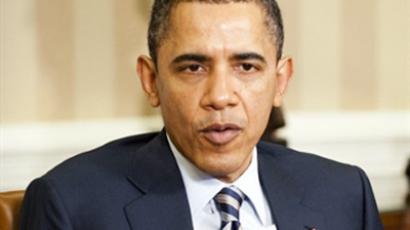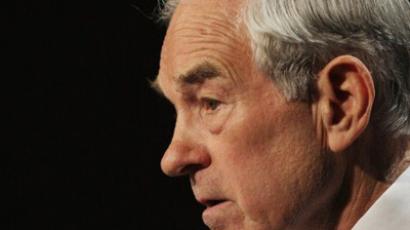Tides are changing for whistleblowers in the US
After nearly two years in custody, Private First Class Bradley Manning is scheduled to be arraigned Thursday at a general court-martial at Fort Meade in Maryland.
Manning faces 22 counts, for his alleged leaking of classified material to the website Wikileaks, and critics say some of the harshest charges against him are meant to make an example of him, to dissuade anyone from leaking any sensitive information in the future.Among the 22 charges filed against him are aiding the enemy, violating the Espionage Act and illegally transferring classified data to unauthorized source.Part of that was the video “Collateral Murder," showing US Army pilots killing unarmed civilians, including two Reuters employees. The video had been classified by the US Military, though Jesselyn Radack, the Director of National Security and Human Rights for the Government Accountability Project, said it should never have been. “You can’t go around classifying criminal information – that is not proper classification and I have not heard a single person claim that what the Collateral Murder video showed was not War Crimes,” Radack said.Bradley Manning was arrested, in the process becoming the clearest symbol of a new set of standards – a system that now works against those reporting the wrong doing and protects those doing the wrong, often in the name of national security. “The pendulum right now is still very much a post 9-11 time of national hysteria and limit civil rights and liberties,” Radack said, and she would know.She was an attorney with the US Department of Justice and blew the whistle in the case of the so-called American Taliban, John Walker Lindh. “I had advised not to interrogate him without an attorney and not to torture him and when I blew the whistle I ended up being put on criminal investigation, referred to the state bar in which I was licensed as a lawyer and put on the No-Fly List,” Radack saidHer book is called Traitor: The Whistleblower and the “American Taliban.”But it wasn’t always this way.Daniel Ellsberg was hailed as a hero by the public for leaking information that became known as The Pentagon Papers, classified documents he helped write, that revealed what was actually happening in Vietnam during war time. The government tried to have him locked up for life, but was unsuccessful.Ramsey Clark, the former US Attorney General, praised Ellsburg.“What he revealed about the government is what the public should have known from the government itself. important knowledge,” Clark saidIt is important knowledge now often stifled, both on and off the battlefield. “In the military if a woman is sexually assaulted or abused or even raped she’s supposed to go through the chain of command which will actually harm her instead of helping her,” said Peace Activist Cindy Sheehan, who’s son was killed in action serving in Iraq.Outside of the military, policies are also being drawn up to protect corporations.The so-called “Whistleblower Improvement Act” (H.R. 2483) has passed through its first hurdle on Capitol Hill. If passed, it would actually harm whistle-blowers, requiring them to report misconduct to the employer first, before going to regulatory agencies, and would require those agencies to tell the employer before taking action. “Our government and the businesses are so intricately linked, it’s hard to tell them apart,” Sheehan said.Both now seem to be working harder than ever to keep their secrets out of the public eye.














